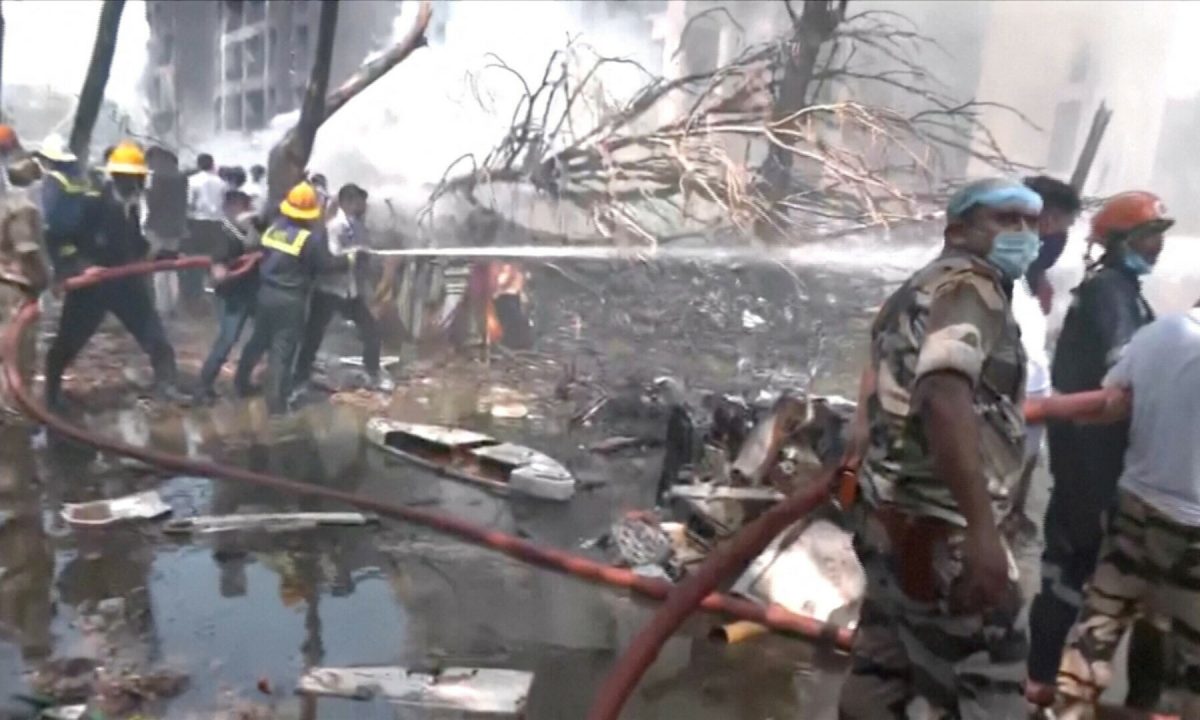Iran on Thursday vowed to “significantly” increase its output of enriched uranium in defiance of US demands ahead of a new round of nuclear talks, and amid reports of an imminent Israeli attack.
The announcement came after a UN nuclear watchdog resolution accused Iran of “non-compliance” with its obligations, prompting Israel to say the world must respond “decisively”.
The United States, Israel and other Western countries have repeatedly accused Iran of seeking a nuclear weapon, an accusation Tehran has categorically denied.
Uranium enrichment has emerged as the key point of contention in nuclear talks with the United States, with the next round due on Sunday in Oman.
“The necessary orders have been issued by the head of the Atomic Energy Organisation to launch a new enrichment centre in a secure location,” said a joint statement from the organisation and the foreign ministry.
Iran will also be “replacing all of these first-generation machines with sixth-generation advanced machines” at the Fordow uranium enrichment plant south of Tehran, the organisation’s spokesman Behrouz Kamalvandi said.
This means “our production of enriched material will increase significantly,” he told state TV.
– Threats to US bases –
The United States and Iran have held five rounds of talks since April to hammer out a new nuclear deal, replacing a 2015 accord that President Donald Trump abandoned during his first term in office.
Iran has threatened to target US military bases in the region in the event that the talks fail and conflict erupts.
Trump appeared to shift his previously optimistic tone this week, saying he was “less confident” a deal could be reached, and on Wednesday ordered US personnel to be moved from the potentially “dangerous” Middle East.
On Thursday, the US embassy in Jerusalem restricted staff movements over security concerns, citing “increased regional tensions”.
Oman’s Foreign Minister Badr Albusaidi has nonetheless confirmed in a post on X on Thursday that the “6th round of Iran US talks will be held in Muscat this Sunday”.
– ‘Suffer more losses’ –
Israel has repeatedly warned that it could attack Iranian nuclear sites, vowing to stop its arch foe from acquiring an atomic bomb.
Iran has warned it would respond to any attack.
“All its (US) bases are within our reach, we have access to them, and without hesitation we will target all of them in the host countries,” Iran’s Defence Minister Aziz Nasirzadeh said in response to US threats of military action if the talks fail.
“God willing, things won’t reach that point, and the talks will succeed,” the minister said, adding that the US side “will suffer more losses” if it came to conflict.
A US official had earlier said that staff levels at the embassy in Iraq were being reduced over security concerns, while there were reports that personnel were also being moved from Kuwait and Bahrain.
An Iraqi security official said it was “not complete evacuation” and the US was taking precautionary measures in case of the failure of talks.
Meanwhile, a spokesperson for the US embassy in Manama said the mission “has not changed its staffing posture and remains fully operational”.
– ‘Strategic mistake’ –
The latest developments come amid a diplomatic standoff over Iran’s uranium enrichment, which Tehran has defended as a “non-negotiable” right while Washington has called it a “red line”.
Iran currently enriches uranium to 60 percent, far above the 3.67-percent limit set in the 2015 deal and close though still short of the 90 percent needed for a nuclear warhead.
Iran’s supreme leader Ayatollah Ali Khamenei, who has the final say in major state policies, has recently said enrichment is “key” to Iran’s nuclear programme and that the United States “cannot have a say” on the issue.
On May 31, after the fifth round of talks, Iran said it had received “elements” of a US proposal for a nuclear deal, with Araghchi later saying the text contained “ambiguities”.
Iran has said it will present a counter-proposal to the latest draft from Washington, which it had criticised for failing to offer relief from sanctions — a key demand for Tehran, which has been reeling under their weight for years.
On Thursday, the International Atomic Energy Agency’s board of governors adopted a resolution condemning Iran’s “non-compliance” with its nuclear obligations, carried by 19 votes in favour, out of 35 in total, diplomats said.
The resolution could lay the groundwork for European countries to invoke the “snapback” mechanism under the 2015 nuclear deal, reinstating UN sanctions in response to Iranian non-compliance — an option that expires in October.
On Wednesday, Iran’s permanent UN representative Amir Saeid Iravani, said Tehran would consider “proportionate responses” if the snapback mechanism is triggered — including “starting the process of withdrawal” from the Non-Proliferation Treaty.










